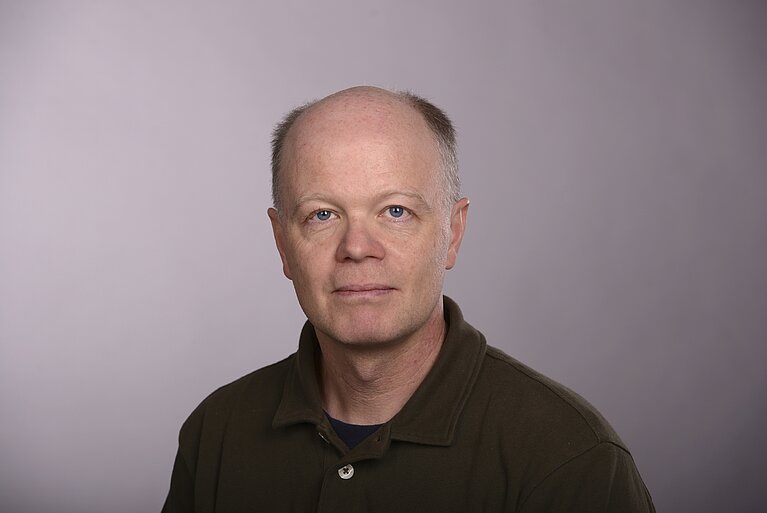October 19, 2015
Do you want to know what it’s like to work as Scientific Community Engagement Group Lead at CSCS? We spent a day with Claudio Gheller, who works at CSCS since June 2011.
Could you shortly present yourself?
A quick biography to start. I took my degree in Physics at the University of Padova and then a PhD in Astrophysics at SISSA-ISAS in Trieste. After the PhD, I spent more than 10 years at CINECA, the largest academic supercomputing center in Italy, working as Computational Scientist. In 2011, I moved to CSCS in the same role, supporting the astrophysics community in developing software to exploit the available HPC resources and to analyze and visualize the data produced by numerical simulations. Furthermore I spent part of my time working in the framework of the PRACE-2IP EU project. At the end of 2013 I was appointed Group Leader of the SCE group and I began a new professional adventure, characterized by a number of management activities, but without forgetting my original interest and passion for science and astrophysics, trying to keep on growing my collaborations with various research groups in Switzerland and worldwide.
What is the mission of Scientific Community Engagement, the group you are leading?
The name is quite expressive. The idea is to provide the scientists who needs HPC resources an interface between supercomputing and science, represented by a group of experts who can understand the needs of specific scientific communities and the features of the available cutting-edge technological solutions. Such experts have to address researchers to an optimal usage of the HPC systems, collaborate with them in the development of codes and tools and contribute to national and international R&D projects.
How would you describe a regular day as a Scientific Community Engagement Group Lead at CSCS?
One of the most interesting and positive characteristics of my work is the variety of different aspects and challenges that one has to face. Everyday is different from the previous. Meetings, interactions with the other members of the team and of the center, support to students and researchers, travels for workshops, project meetings, conferences, absorb most of my time during the week. But, still, time must be found to stay up-to-date and “within” the community, reading papers and documents, developing code and contributing to scientific publications. If some minutes are left, why not experimenting new technologies and software solutions…
On which projects are you currently working?
I am currently involved in various projects. PASC (the Swiss Platform for Advanced Computing) is the main one. In PASC, I act as liaison for the Physics Network (involving scientists from astro and plasma physics from Lausanne, Zurich and Basel). Furthermore I am co-PI of two co-design projects: DIAPHANE, for developing a library od Radiative Transfer methods, and Particle & Cells, for the optimization of particle-in-cell techniques on innovative computing platforms. I am also involved in the PRACE-4IP EU funded project, for the deployment of training activities. Another interesting and promising activity, which is currently taking its first steps, is related to the Swiss participation to the Square Kilometer Arrays (SKA) project, one of the most ambitious projects in astronomy for the next decade.
What does it mean for your team to work so closely with the scientific community?
It means that we are continuously challenged. We interact with some of the main experts in their respective scientific fields, highly focused on doing cutting-edge research. They expect a lot from us. They want to find persons who can understand in some details the research they are doing and its related needs and at the same time can provide the best solutions to address those scientific challenges through High Performance Computing. This can be guaranteed only keeping the pace of scientific and technological progress. Each of us is committed to that and it is really tough… On the other hand, staying at the forefront of science and technology is incredibly exciting!
What do you like most working as a Scientific Community Engagement Group Lead at CSCS? What is most rewarding working at CSCS?
As the SCE group leader I have the duty of coordinating the members of my team, continuously updating on the different activities and projects they are involved in and discussing their accomplishments and their future challenges and objectives. Being all brilliant and highly competent guys, this is extremely interesting, rewarding and, often, why not, amusing!
Which are your next projects?
As I stressed before, my job is continuously re-shaping, with new, sometimes unexpected, projects and challenges. For sure, Data Science, which is rapidly growing in all scientific areas, represents the next target for the group. We have to understand what it is, all the implications for science and HPC and how HPC can help in doing good data based research… And obviously design and implement the right solutions. This is all new for us, and, for sure, will need a lot of work.
